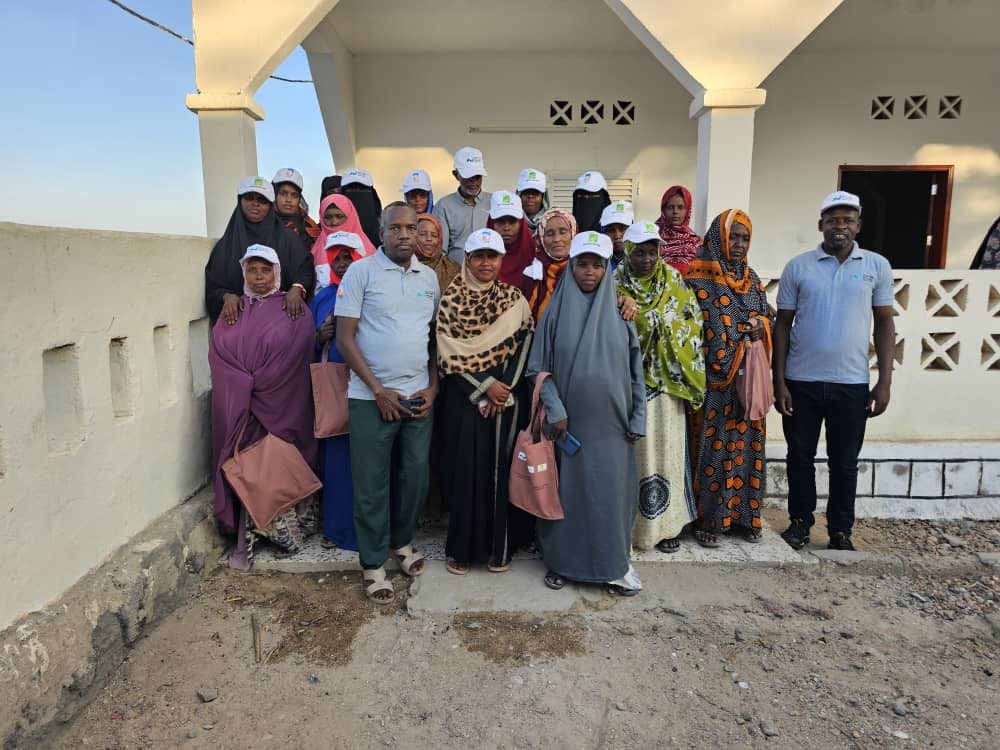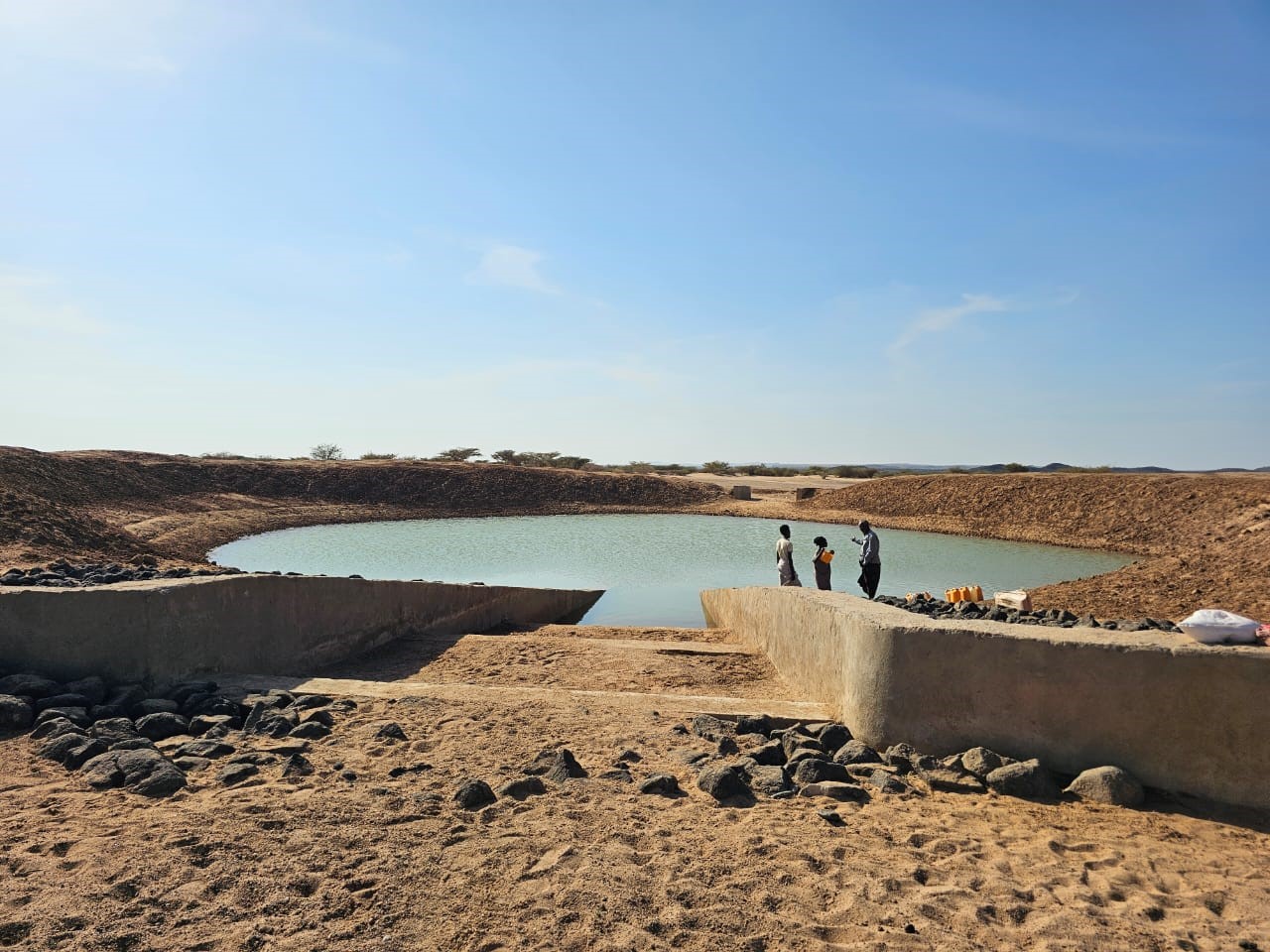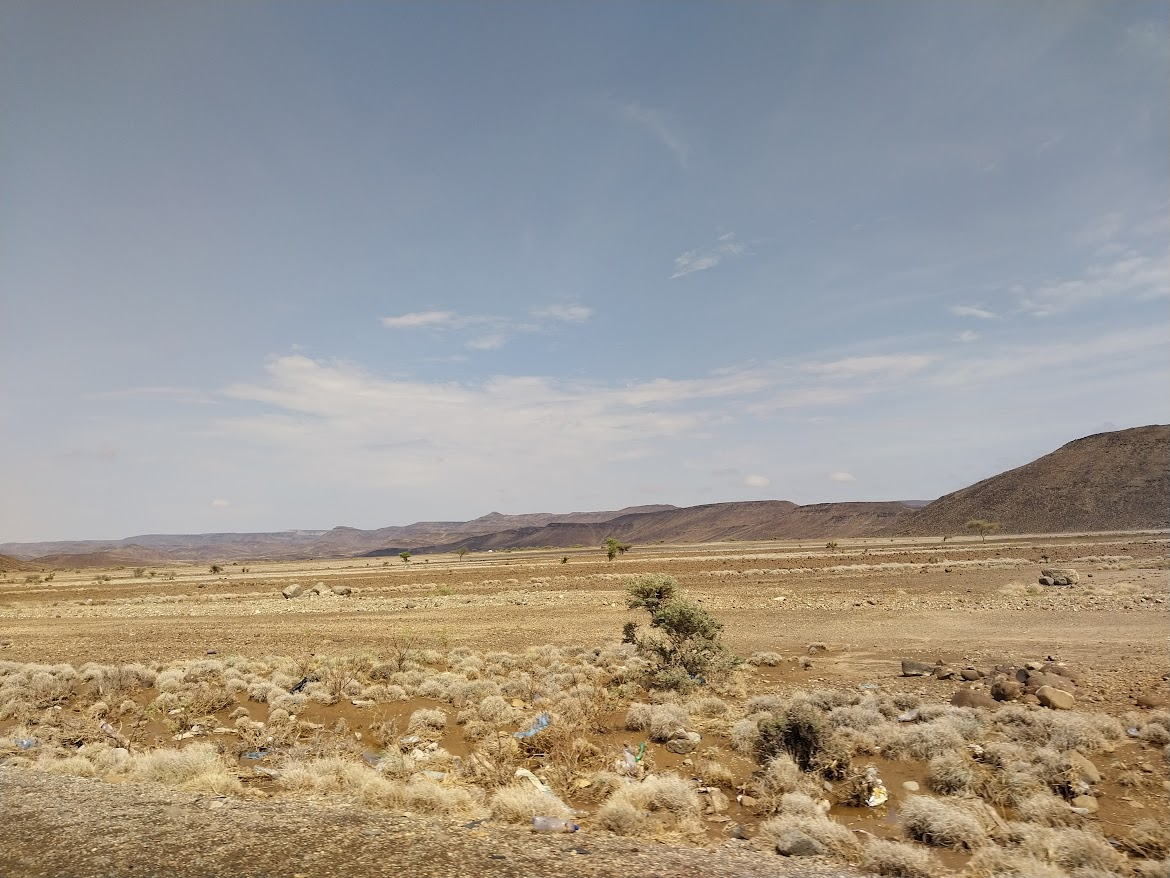The DRESSEA Project: Strengthening Drought Resilience for Smallholder Farmers and Pastoralists in the IGAD Region(DRESSEA), funded by the Adaptation Fund and regionally implemented by Sahara and Sahel Observatory (OSS), while the Global Water Partnership (GWP) Eastern Africa is the regional executing entity, is changing this reality. By improving water harvesting, expanding livelihood options, introducing microcredit systems, empowering women, and strengthening drought resilience across communities.
In partnership with Djibouti’s Ministry of Women and Family (MFF), the project has supported the establishment of seven women-centered cooperatives in Behidleh, Plaine de Hanleh, Oued Gobaad, As Eyla, Sankal, and Garsale Daba. These cooperatives range from artisanal groups to agricultural and water management cooperatives, formed through an inclusive community consultation process involving local leaders, customary authorities, and women champions.
Together, communities selected the most promising income-generating activities for each village. This process empowers women to voice their priorities and participate in decisions that directly shape their economic future, a key step in addressing the structural inequalities that increase exposure to gender-based violence. “Being part of this cooperative has changed how I see myself. I have confidence now, and I feel safer knowing we make decisions together, not alone,” shared a member of one of the cooperatives.

Photo: The general meeting of the cooperatives established (photo credit: GWP, 2025)
The project has also supported the administrative setup of the cooperatives, including the creation of savings accounts through CPEC du Sud and the signing of official registration documents. This formalization, secures women’s access to financial opportunities and strengthens their collective resilience.
The project has established approximately 18 community microcredit schemes, enabling women and youth to access zero-interest loans to start small businesses in Djibouti. DRESSEA project is also enhancing rainwater harvesting through well rehabilitation, small scale storage systems, runoff water collection and catchment restoration among others. With water now closer to homes, women spend less time traveling long distances through unsafe areas. “I used to walk almost a whole day searching for a water source. This area is arid and we do not have access to water sources at all. Since the DRESSEA project facilitated us to construction this multi-purpose dam to harvest runoffs, I no longer fear going out early in the dark. I feel safer, and I have more time for my children and other duties,”one of the beneficiaries of Abu Youssef Multi-purpose dam.

Photo: A multi-purpose dam constructed in Gobaad Region, Djibouti. ( Photo credit: GWP, 2025)

Photo: The landscape of Djibouti (Photo credit: GWP, 2025)
As drought and climate pressures intensify across the IGAD region, the experience in Djibouti highlights why women must be at the center of climate adaptation programming. DRESSEA project’s integrated approach, combining Early Warning Systems, climate adaptation actions, and community driven planning, reinforces that women’s protection and resilience must be central to climate action. Djibouti’s experience in empowering women to have access to finance and water sources stands as a model for building economically empowered, climate-resilient, and GBV safer communities across the IGAD region.
By; GWPEA team
